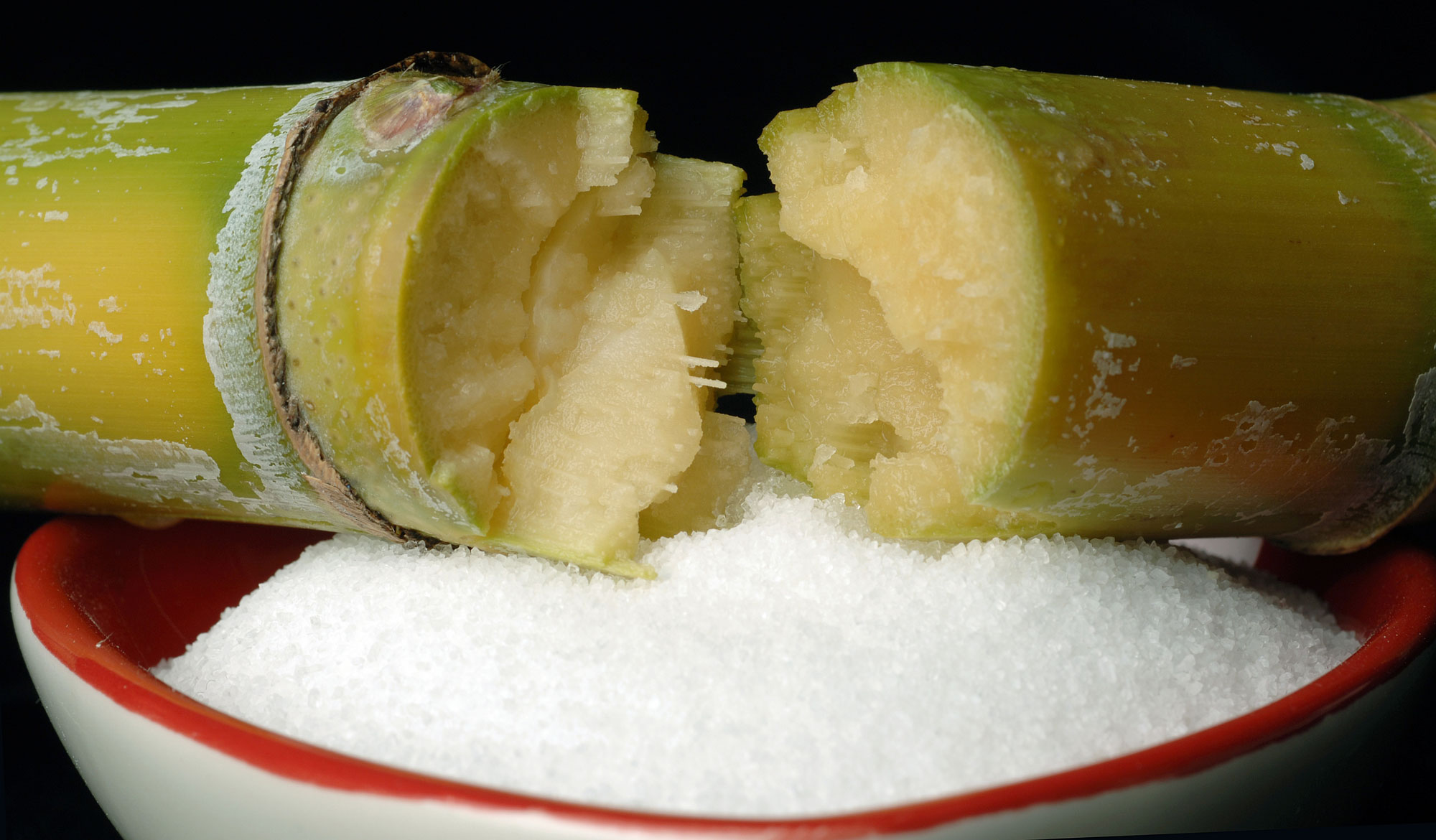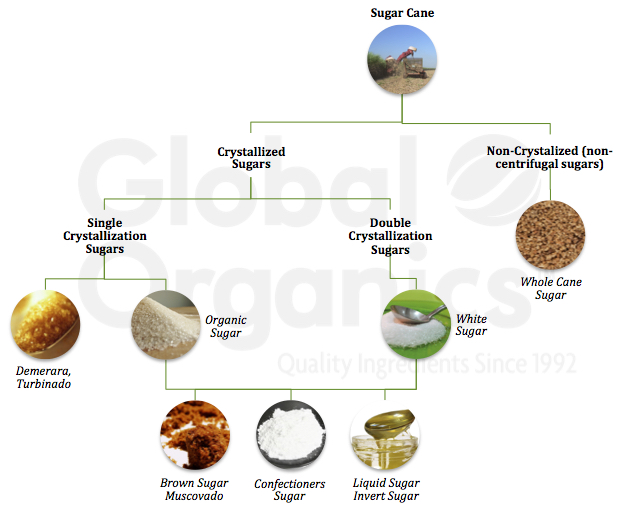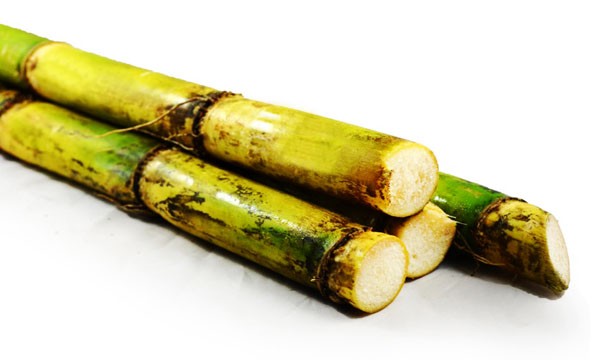Why Cane Sugar Processing Chemicals Are Critical for Modern Sugar Refining
The duty of cane sugar handling chemicals in contemporary sugar refining can not be overstated, as they are integral to enhancing both the efficiency of removal and the total high quality of the final item. Representatives such as phosphoric acid and specific flocculants are utilized to remove impurities, resulting in sugar that not just satisfies consumer expectations however additionally abides by market criteria. The effects of these chemicals prolong beyond high quality, touching upon market dynamics and ecological factors to consider. sugar and cane. This elevates vital inquiries concerning the sustainability of such techniques and their influence on the future of sugar manufacturing.
Role of Processing Chemicals
The efficacy of walking cane sugar processing pivots considerably on the strategic application of handling chemicals. These chemicals play a crucial role in boosting the efficiency and top quality of sugar extraction and refining. From the first stages of juice removal to the last purification actions, handling chemicals assist in various vital procedures.
In the removal stage, chemicals such as phosphoric acid and calcium hydroxide are employed to enhance the explanation process, aiding to get rid of contaminations and put on hold solids from the cane juice. This not just improves the return however also makes certain the quality of the end product. In addition, representatives like flocculants help in the fast settling of pollutants, therefore enhancing the general process.
As the handling developments, chemicals are used in decolorization and formation phases. Turned on carbon and ion exchange materials offer to eliminate color and smell, guaranteeing that the refined sugar satisfies customer top quality requirements. Ultimately, the role of processing chemicals prolongs beyond operational performance; they considerably impact the sensory qualities of the end product, adding to market competitiveness. Hence, the thorough choice and application of these chemicals are vital for accomplishing optimal end results in cane sugar processing.
Key Types of Chemicals
Cane sugar handling relies upon a variety of key chemicals that promote each phase of production. These chemicals play crucial roles in clearing up, bleaching, and cleansing the sugar extracted from walking cane.
One main group of chemicals consists of flocculants, such as polyacrylamide, which aid in the explanation process by promoting the aggregation and settling of impurities. Additionally, calcium hydroxide is frequently employed to counteract acidity and assist in the removal of non-sugar components.
Lightening agents, such as turned on carbon and sulfur dioxide, are made use of to decolorize the syrup, resulting in a clearer final product. These chemicals assist remove color substances that might impact the sugar's appearance and marketability.
Furthermore, phosphoric acid functions as a pH regulator during the processing phases, guaranteeing ideal conditions for the enzymatic tasks entailed in sugar extraction and filtration.
Other important representatives include edta (ethylenediaminetetraacetic acid), which chelates steel ions that might militarize undesirable reactions, and salt hydroxide, which assists in pH control throughout the refining procedure. Jointly, these chemicals boost performance and ensure a premium walking cane sugar item.
Advantages for Sugar Top Quality
Often neglected, using particular handling chemicals dramatically improves the total top quality of walking stick sugar. These chemicals play a pivotal role in refining procedures, making sure that the end product fulfills rigid industry criteria for pureness and preference.

Furthermore, refining chemicals assist in attaining a consistent granulation and texture, which are vital for consumer acceptance. By regulating the formation process, these chemicals guarantee that the sugar crystals develop uniformly, bring about an extra attractive item that liquifies well in numerous applications.
Moreover, making use of these chemicals can enhance the service life of walking stick sugar by lessening wetness absorption and microbial growth. Overall, the strategic application of handling chemicals is essential for providing premium walking stick sugar that fulfills customer assumptions and market demands.
Ecological Impact Factors To Consider

Furthermore, the energy-intensive nature of sugar refining, intensified by chemical use, usually causes raised carbon exhausts. This adds to climate change and increases concerns pertaining to the sustainability of current refining practices. Additionally, the sourcing of these chemicals may involve methods that intimidate biodiversity, such as monoculture farming, which lowers the strength of farming communities.

To alleviate these influences, sugar refiners are increasingly discovering lasting options and adopting ideal techniques that decrease chemical use. Carrying out extensive environmental management systems can aid make certain that the refining procedure aligns with ecological criteria and promotes biodiversity. Ultimately, a well balanced technique that prioritizes both sugar quality and ecological stewardship is essential for the long-lasting practicality of the sugar industry.
Future Fads in Refining
As the sugar sector grapples with the environmental challenges related to typical refining techniques, cutting-edge techniques are arising to boost both effectiveness and sustainability. One significant pattern is the adoption sugar and cane of eco-friendly chemistry principles, which prioritize using non-toxic, eco-friendly processing chemicals. This change not only decreases environmental influence but additionally addresses consumer need for cleaner production approaches.
Another encouraging development is the implementation of innovative filtering technologies, such as membrane layer splitting up and adsorption processes. These techniques improve the clearness and top quality of the sugar while decreasing the quantity of wastewater generated throughout refining. Furthermore, the combination of electronic innovations, consisting of IoT and AI, is changing operational effectiveness by enabling real-time monitoring and anticipating upkeep, hence lessening resource waste.
Furthermore, using byproducts from sugar refining, such as Read Full Report bagasse and molasses, is gaining traction. These products can be converted into biofuels or value-added items, adding to a round economic climate within the industry. Collectively, these trends indicate a change in the direction of more sustainable methods that not only improve functional performance but likewise line up with international sustainability objectives, ensuring the future viability of sugar refining.
Final Thought
Cane sugar handling chemicals are vital in modern sugar refining, significantly improving the effectiveness and high quality of sugar removal. The calculated use of these chemicals not only improves the purity and flavor of the end product however likewise makes certain constant condensation and structure. As the sector significantly focuses on sustainability, the fostering of environmentally-friendly processing agents is most likely to form future trends in refining, ultimately leading to better products and expanded shelf life for consumers.

Eventually, a balanced method that focuses on both sugar top quality and environmental stewardship is necessary for the long-term feasibility special info of the sugar sector.
Cane sugar processing chemicals are necessary in modern sugar refining, substantially boosting the effectiveness and high quality of sugar removal.